Chef Christian F. Puglisi is no stranger to the restaurant industry: his Michelin-starred restaurant Relæ was listed as one of the "50 Best Restaurants in the World" many times. What makes his food so special is not only the taste, but also the story behind each dish. With a logical and ethical mindset, Christian's "farm-to-table" approach is the shortest and simplest path to food: he actually runs his own farm. Despite this high-level process, Christian's cuisine offers a very casual menu: bread and pizza, for example. This is his message: instead of offering something special or expensive, Christian wants to change our mindset on the food we eat on a daily basis, and to enjoy it more. Through the medium of cooking, Christian conveys the relationship between food and the climate, and the relationship between food and us, who belong to the same cyclical ecosystem.
"Cock-a-doodle-doo!" When visiting Christian and walking through the gate of his house, chicken will greet you first.
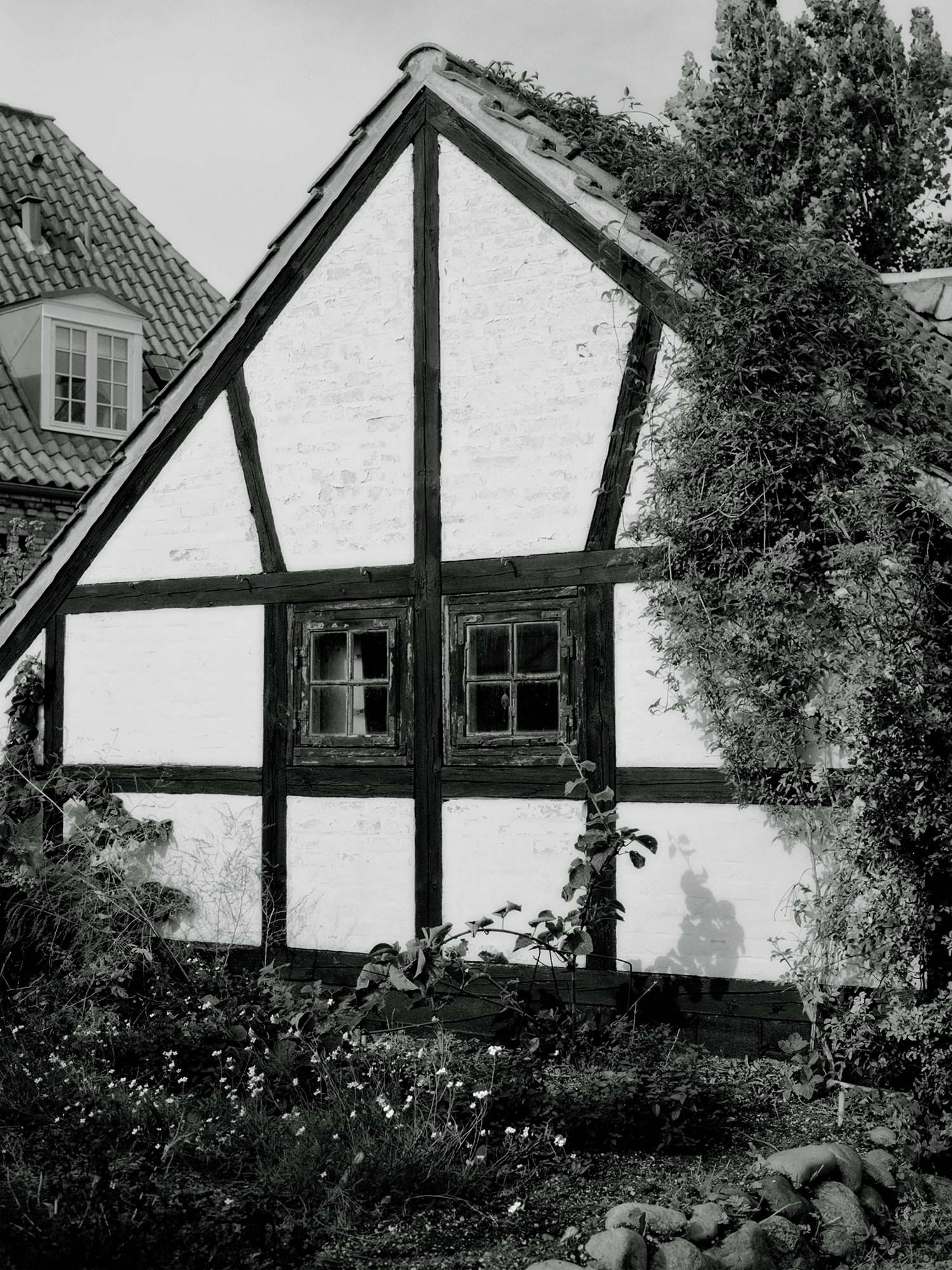
You’re growing vegetables and fruits in various places here: a greenhouse, and a small plot in your own garden…
We moved into this house this year. I fell in love with the garden and the glasshouse. Some of the vegetables and fruits were already growing here, and some of them are wild. By the way, the yellow flowers are arugula, commonly known as rocket. Most people know about it, but they may not have seen its flowers before. Next to the arugula is wild mint. And further back, there is a berry tree. Blackcurrants and raspberries are now growing. Oh, and I'm also growing rhubarb.
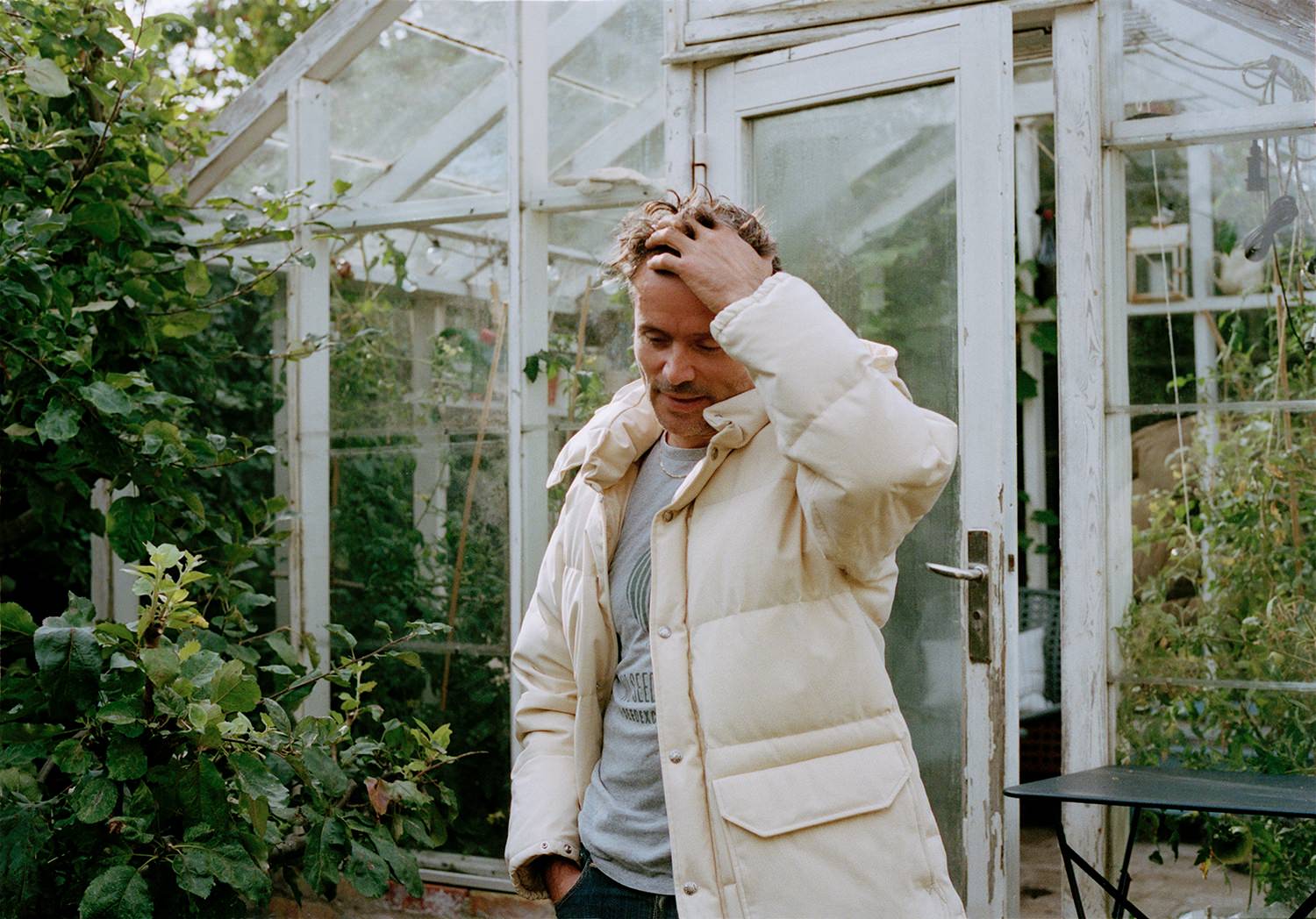
You also have chickens!
We have four chickens now, and we get fresh eggs every morning. Whenever we have leftover pasta, we feed it to the chickens. The next morning, we get fine eggs.
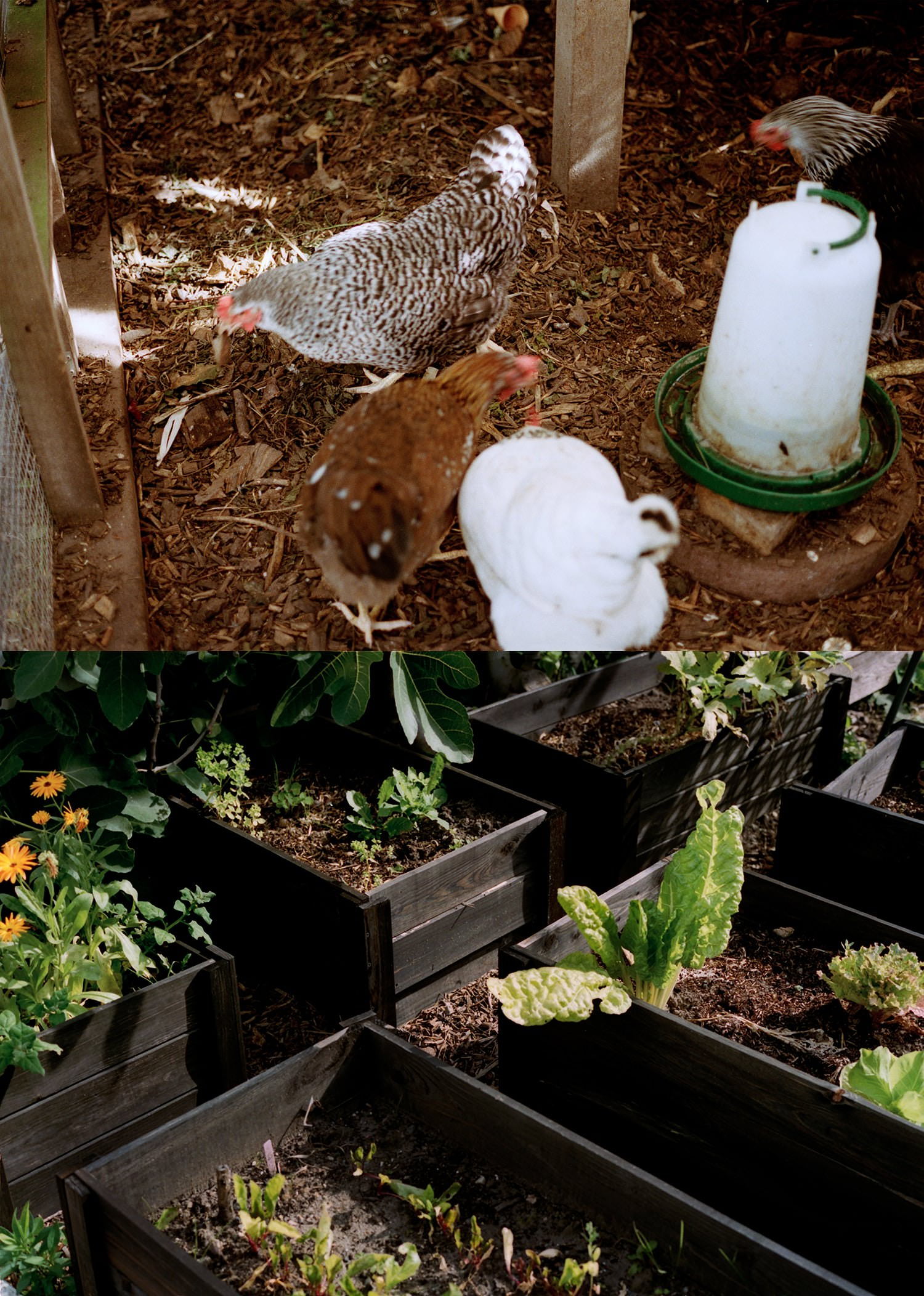
Circulation, right?
It makes sense, doesn’t it? You can do this at home, but it’s difficult to do it at the scale of a restaurant. You can't give food surplus from a restaurant to animals, even bread! People talk about food waste, but there are so many regulations in this industry that it is hard to move forward. There are still many challenges.
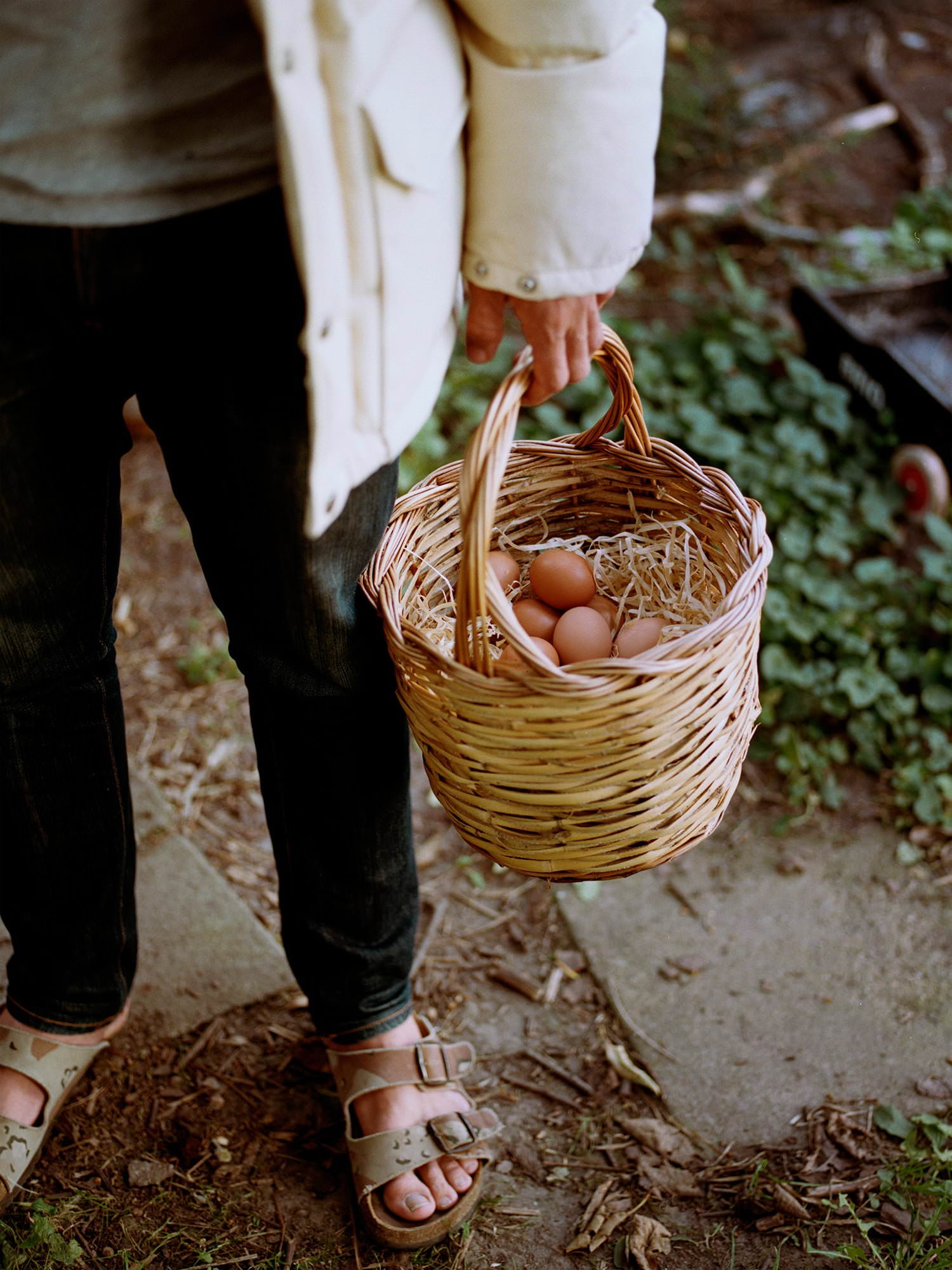
You have won The Sustainable Restaurant Award two years in a row in 2014 and 2015, and in addition to being a chef, you also participate in various food and climate conferences.
Food has a huge impact on climate. We need to answer this very simple question: "How do we get the maximum amount of protein with the least amount of effort?" The answer is also very simple: circulation. Just like what we are doing in this house. The food we eat can also be a source of nutrition for animals. But "just in case something happens," we burn food surplus as garbage. Aren’t we missing a great opportunity? Because of the industry’s regulations, researchers around the world struggle to create a system based on circulation. There was a team that conducted research on feeding food surplus to flies. Those flies laid larvae that contained plenty of protein. By feeding those to chickens, the result was high-quality eggs and meat. But this approach was not approved: not so much out of concern for people's health, but because of the business involved. There are people who don’t want to disrupt the current system. This may be the reason why the restaurant industry has yet to seriously address the climate issue.
Have you been thinking about such things for a long time?
We only started this circulation practice in earnest around 2015-16, so I would say it's a relatively recent thing. We actually had our own farm under the project name "Farm of Ideas." We grew vegetables, had chickens, cows, and pigs. I wanted to create a circulation system between the farm and the restaurant. But the more I tried, the more I learned about the restaurant industry and the complexity of the business system that exists in the food industry. We try to make choices that are good for the environment, but we keep facing various barriers. It was a good opportunity for me to understand that if the system doesn't change, nothing will change.
Maybe it is important to do it on a smaller scale. At home, for example.
We can't change big things all at once, so I think it is important for everyone to be aware of the "regeneration" and "circulation" concepts at the smaller scale of their home.
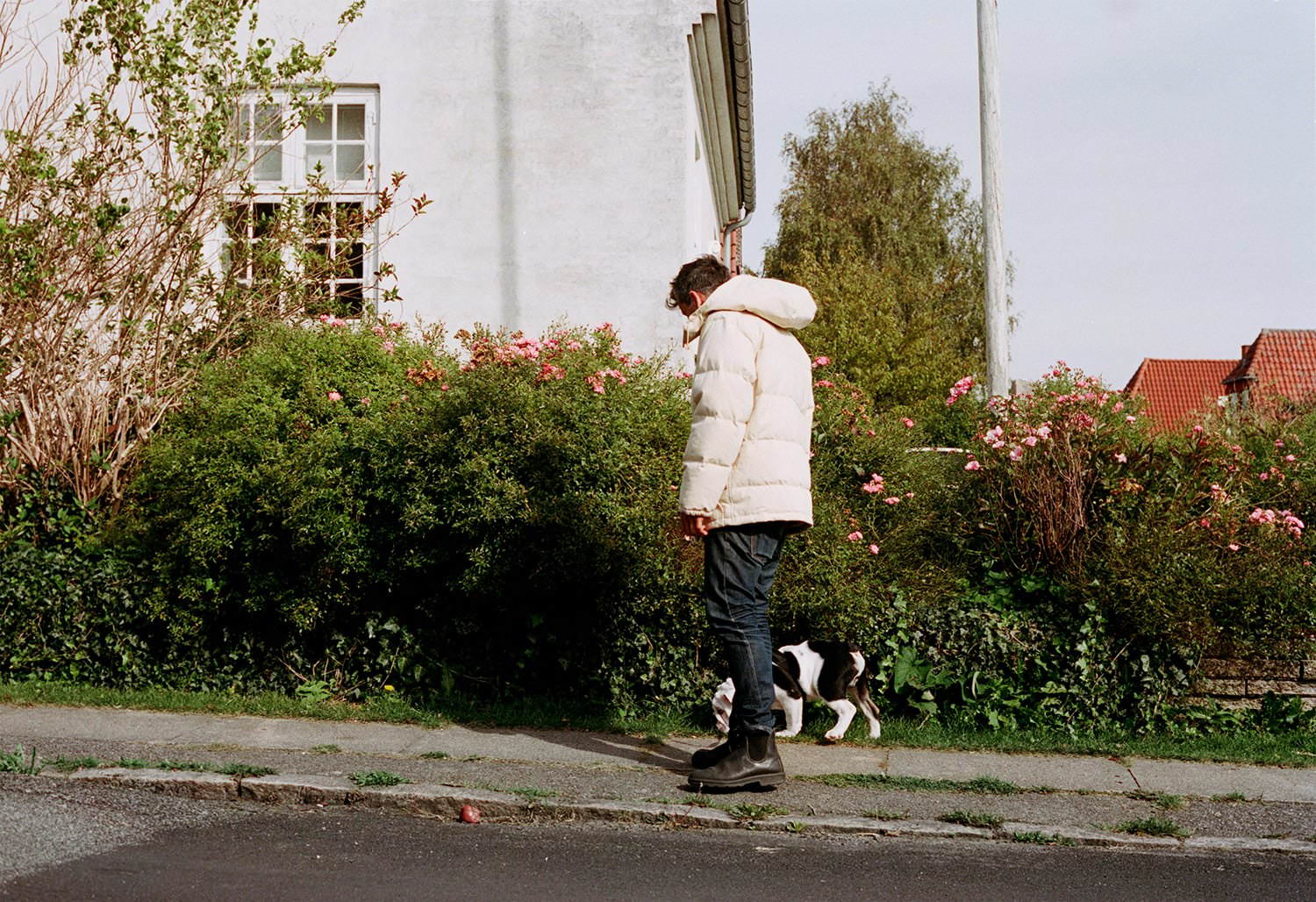
What made you interested in food?
When I was a child, our house had a large garden, and my mother grew a variety of vegetables there, although it was not a vegetable plot. So I worked in the garden from a very young age and learned about the difficulties of production. I also discovered how interesting it is to eat food that was grown right in front of your eyes. That is why, when I decided to open my own restaurant, I wanted to use certified organic ingredients and follow the idea of "farm to table" in the best possible way.
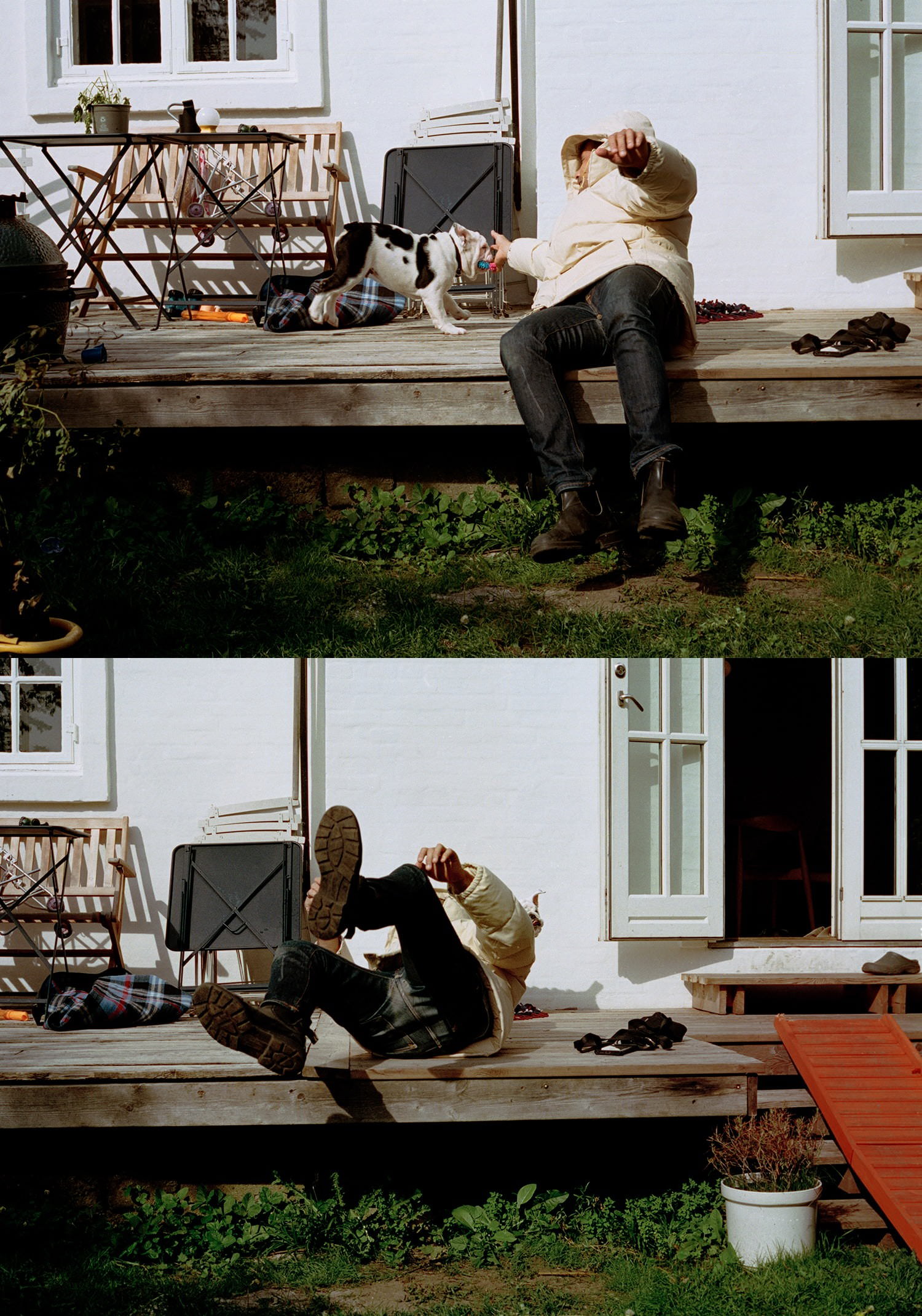
Even today, your interest in food and climate keeps growing.
I am always thinking about it. In fact, now is the most important time, since everyone is becoming more aware of the issue. However, I don’t think that reducing animal products as much as possible and shifting to plant-based products is a promising idea, despite its popularity. Because the more people add new products to their diet, the less they know what they are eating. If this goes too far, humans could become beings that are truly removed from their own ecosystem. I think we can reduce waste and reduce our carbon footprint in a more natural way by being aware that we are part of a cycle, an ecosystem, without forcing ourselves to add new elements to it.
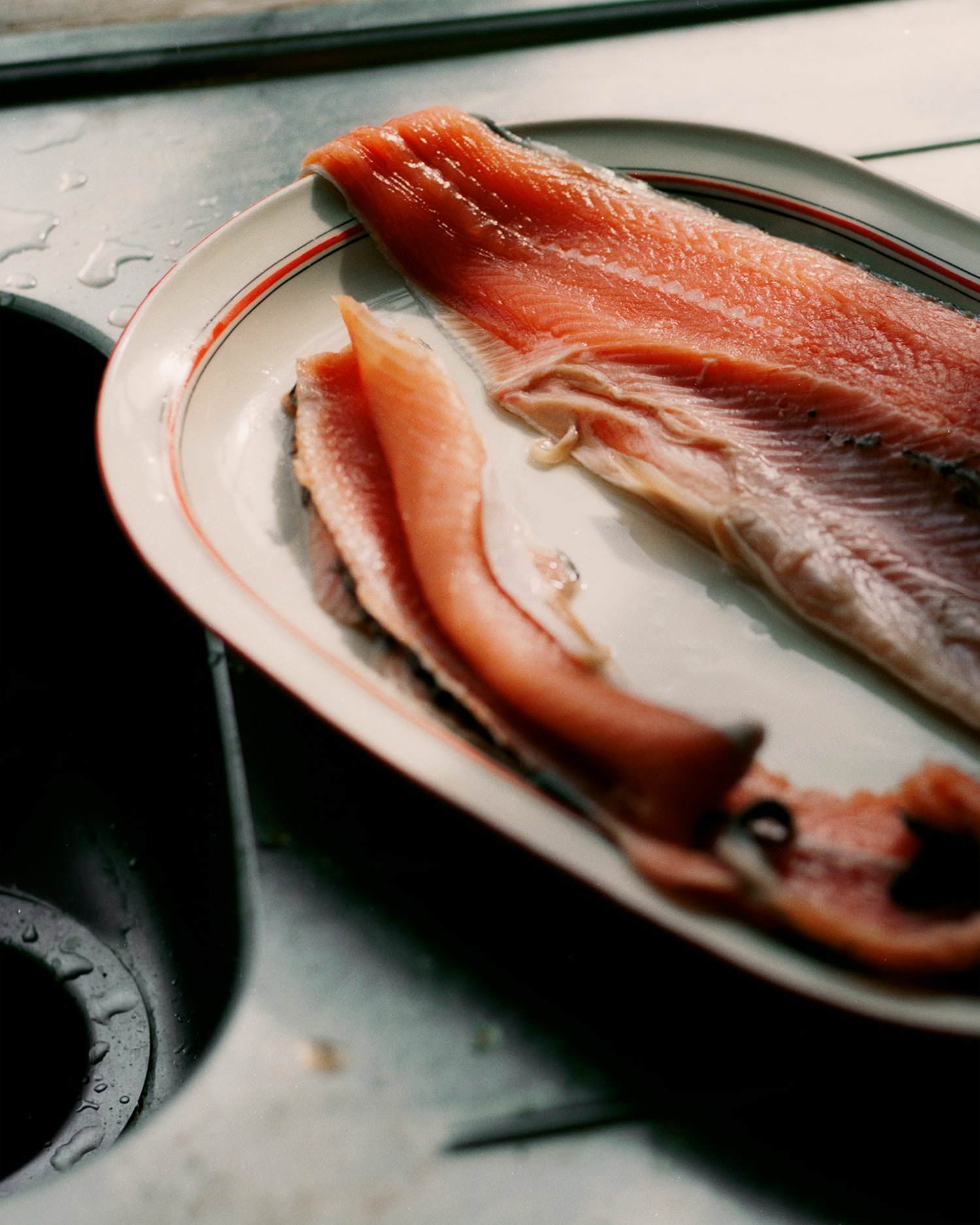
Why are you so committed to organic food?
Because I believe that as a restaurant, as a chef, and as a consumer, it is important to protect organic farming. Professionals like us particularly understand the value of organic farming and the difference in quality of food grown this way. Restaurants should become platforms to communicate this knowledge.
What is the responsibility of a chef?
Of course, it depends on the chef and what they consider as their mission. Today, with the ease of eating out and the availability of delivery services, it is becoming less and less common for families to gather around one table, and to have dinner at home. This means that intergenerational exchange over food and culture is disappearing. So our role may be similar to that of the "grandmothers” of old times. Being a chef allows us to serve food to a variety of people, and to pass on the cultural aspects of food and cooking.
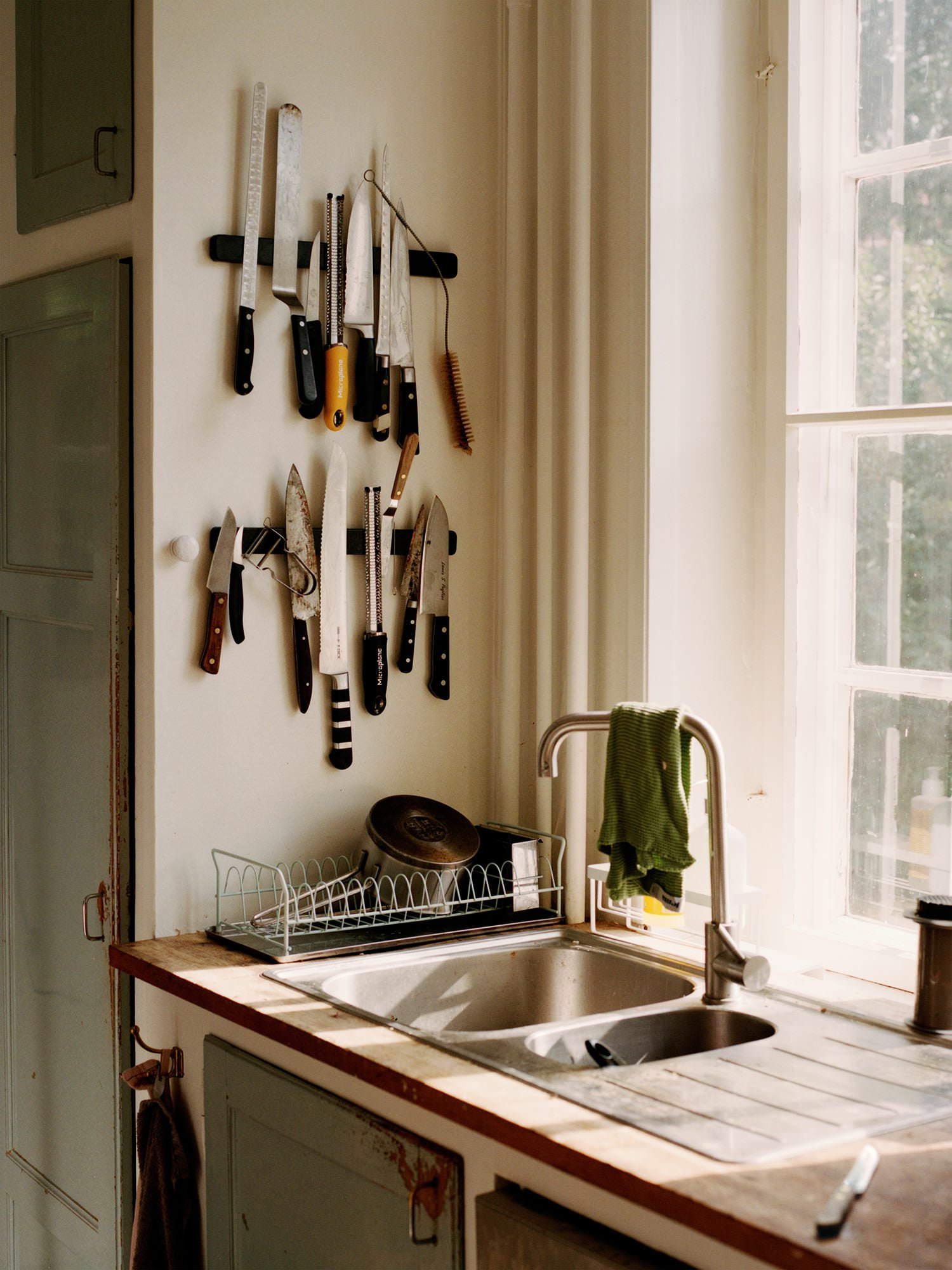
The experience you offer is the equivalent of having a family dinner in old times. What do you think is the difference between cooking at home and cooking in a restaurant?
In a restaurant, you have to be specific, spontaneous, and plan what you want to do and how to do it. At home, the food I make is extremely simple. This fish was given to me by a friend yesterday, and I finished prepping it by removing the head and gutting it. Now I am going to open it and remove the bones. But I haven't decided how to cook it yet. While doing this, I remembered that there were tomatoes in the garden, and that I still had some potatoes left from my shopping yesterday. And then I thought, "Well, let’s roast them in the oven!” I also have some cabbage, so I'll fry it with white wine. It's very simple.
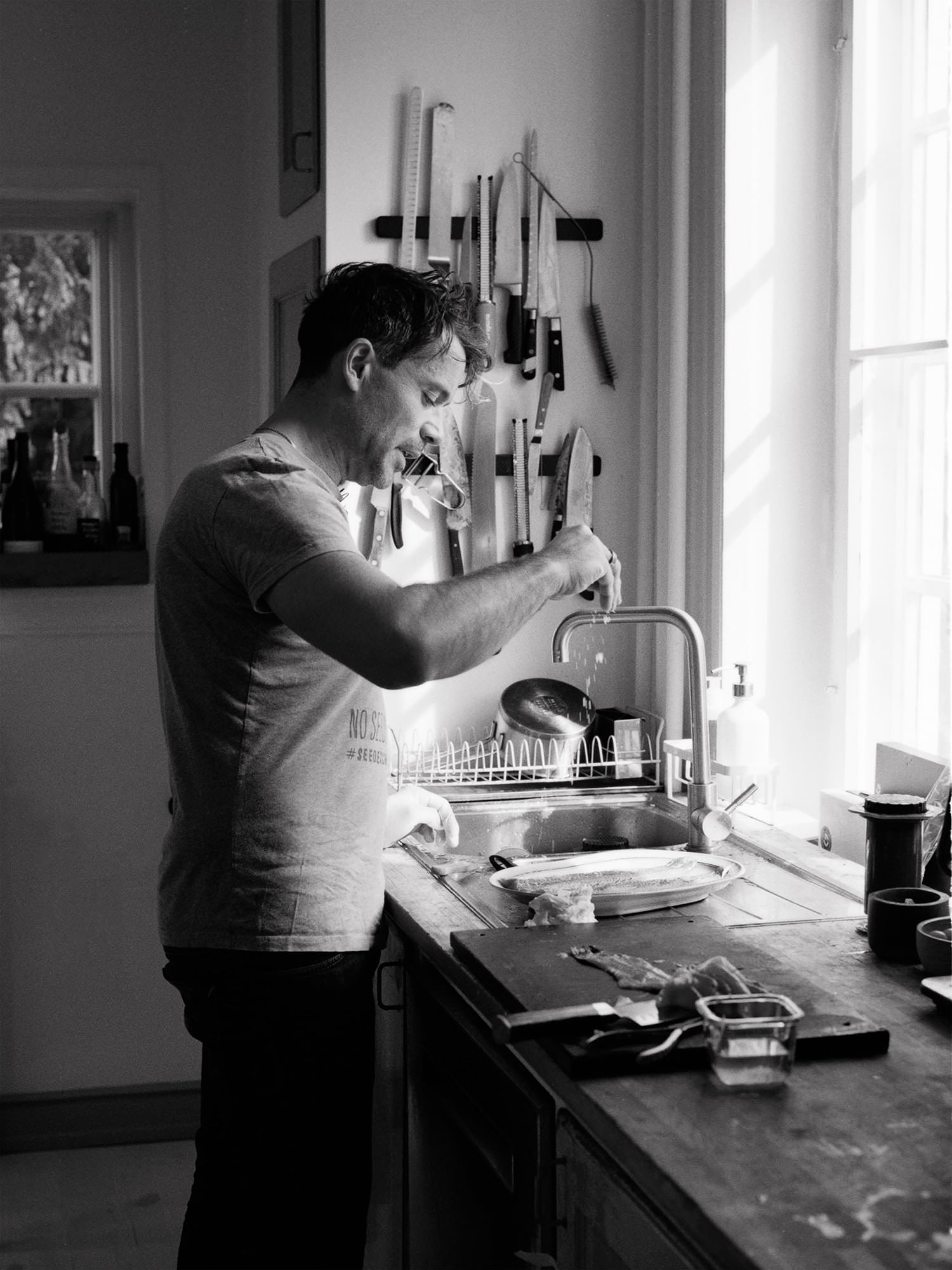
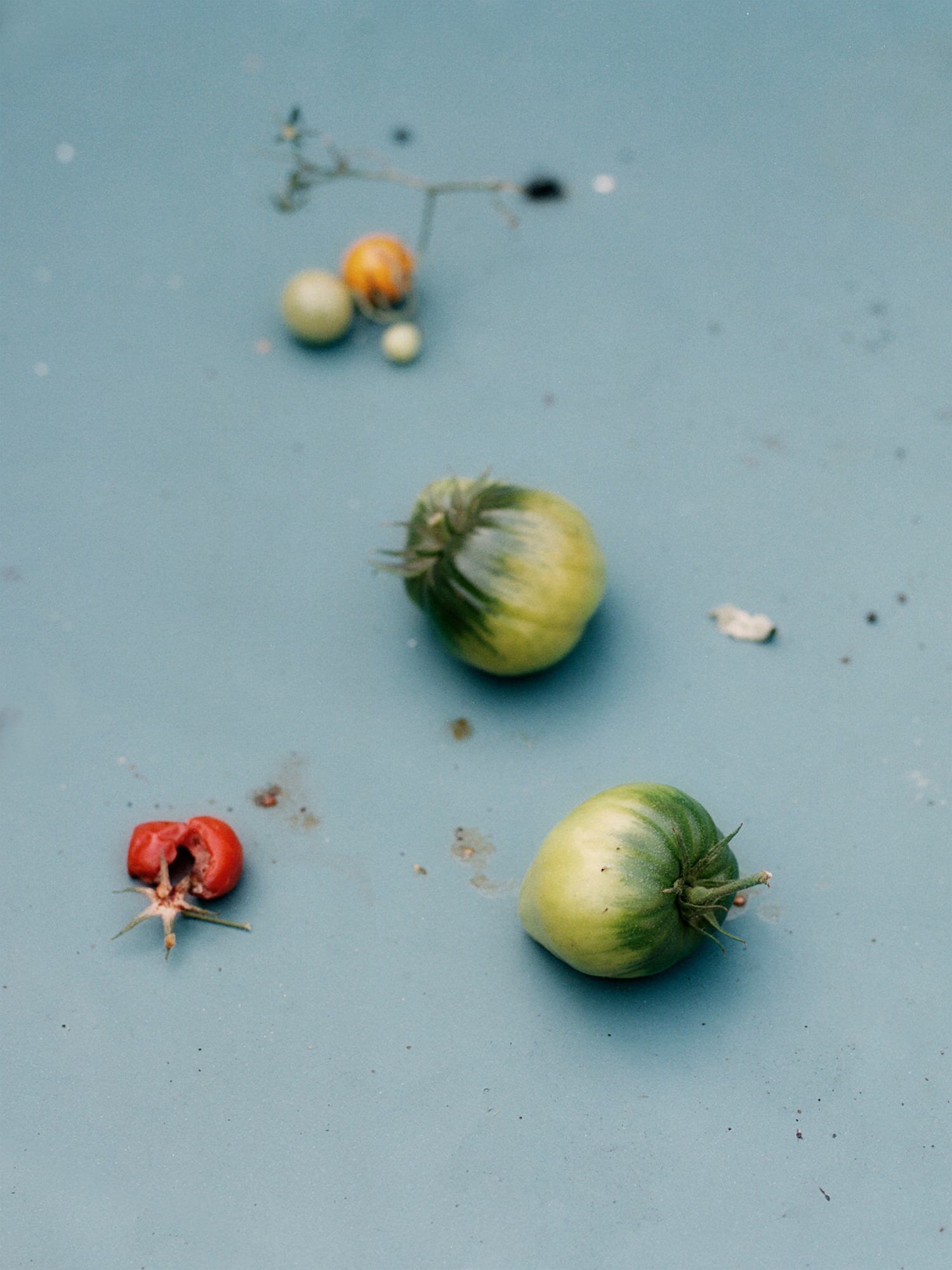
Is this extra piece of fish for the chickens?
I was told a long time ago not to give fish to chickens. It probably makes the meat and eggs smell like fish. Their taste naturally changes depending on what the chickens eat. So this is what our dog, Mario, is going to eat!
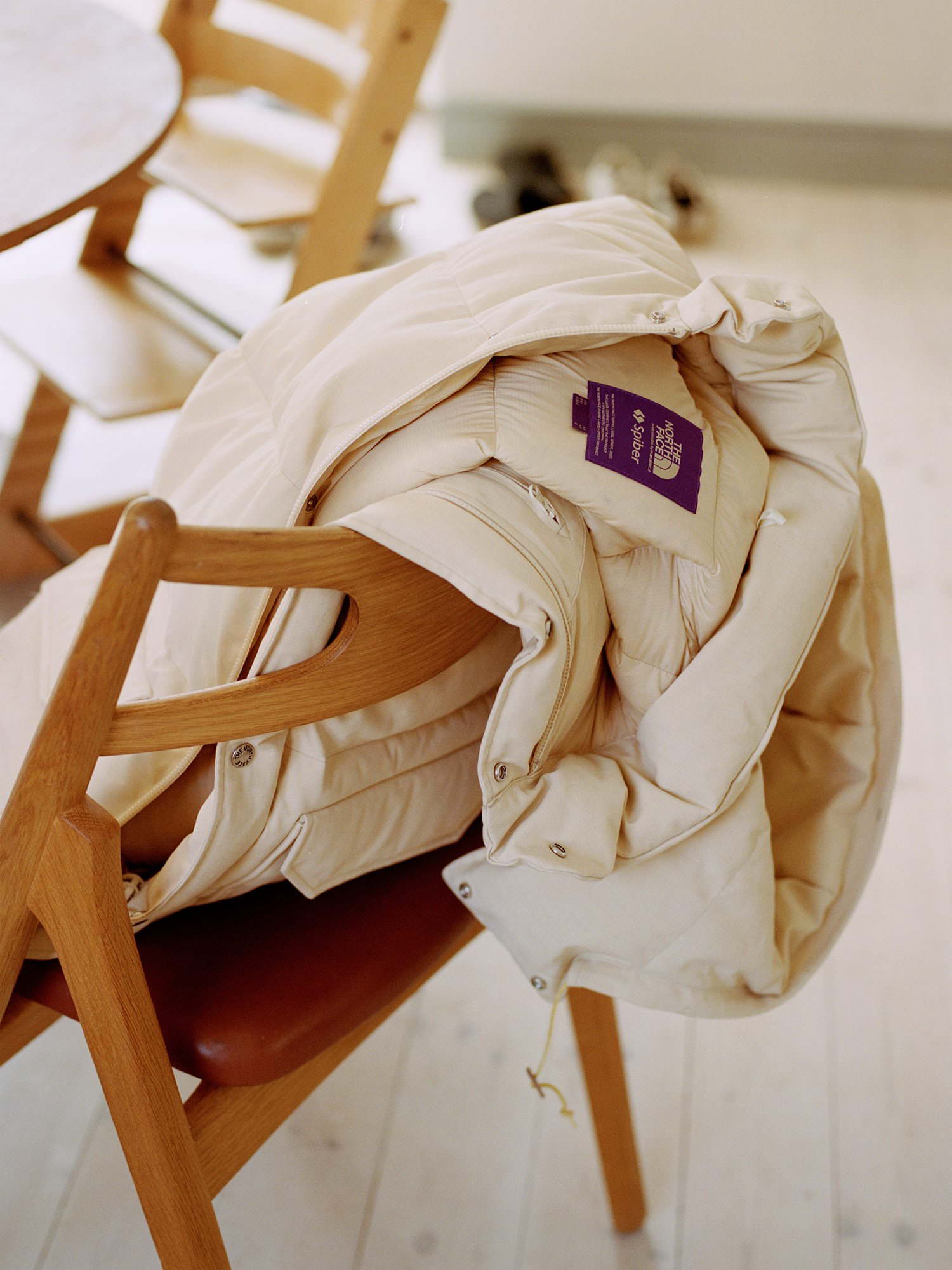
You mentioned that you have a one-and-a-half-year-old child. What are your thoughts on nutrition education?
Of course I can be particular, but my first priority is to make sure that they enjoy eating, and eat a variety of foods. Children's palates are much more sensitive than those of adults. I think that the most important thing is to tell them that food is good for them and that it is fun.
That's what you want us to feel, regardless of age, right?
Food can convey a lot of history and culture, and it tends to be overstated. That is why we place great importance on casualness. Of course, people serving the food should always be serious about pursuing high-level cuisine, but people eating it should be casual about it. A restaurant that strikes the right balance between the two is, in my opinion, a great restaurant.
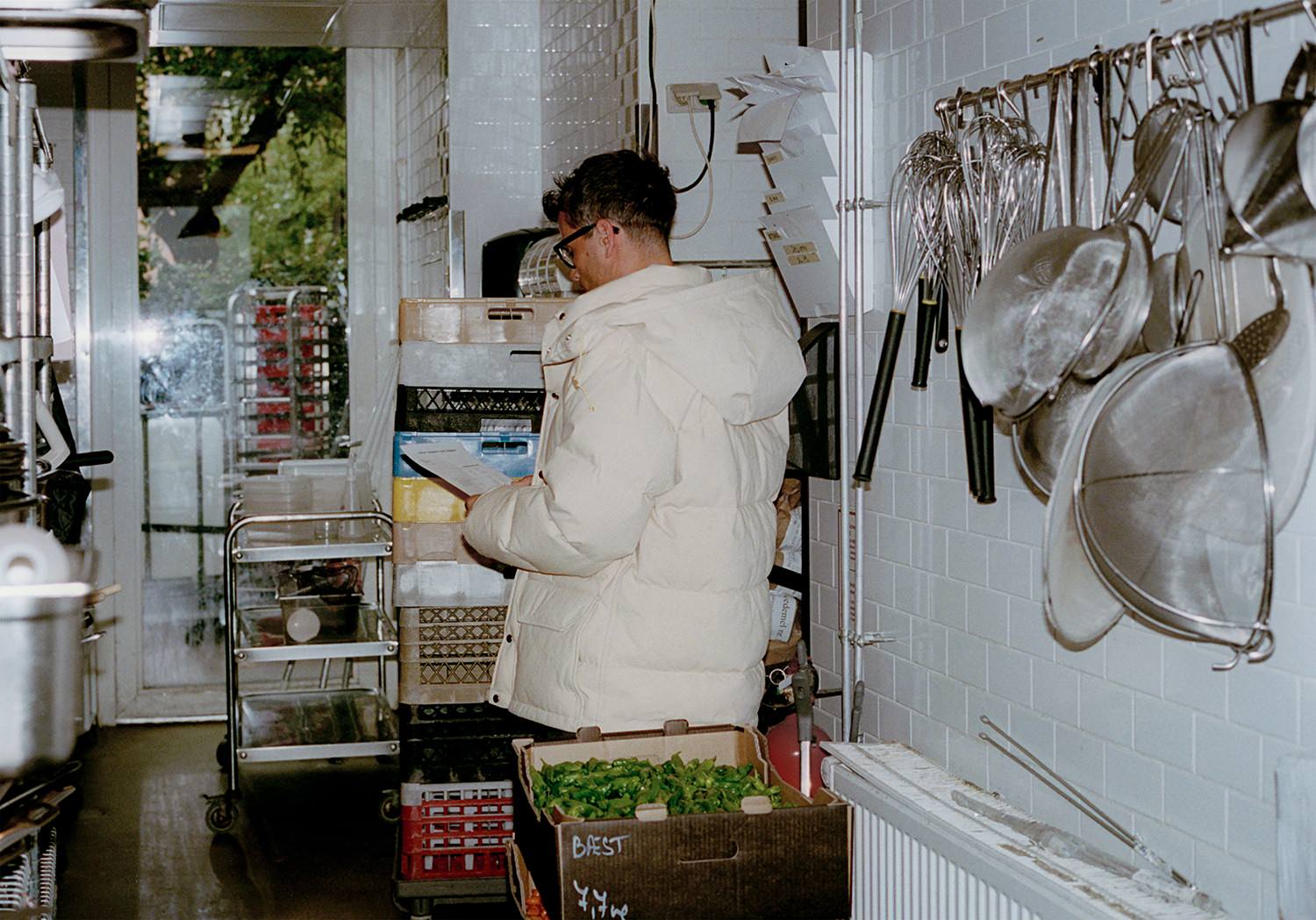
That's all the questions I had. Thank you very much!
OK! Can I take off my jacket? It's still too hot to wear this. It would be just fine in the winter, though. The colors are nice and natural. If you wear something with a flashy design or vivid colors in Copenhagen, you'll look like a floater! (Laughs)
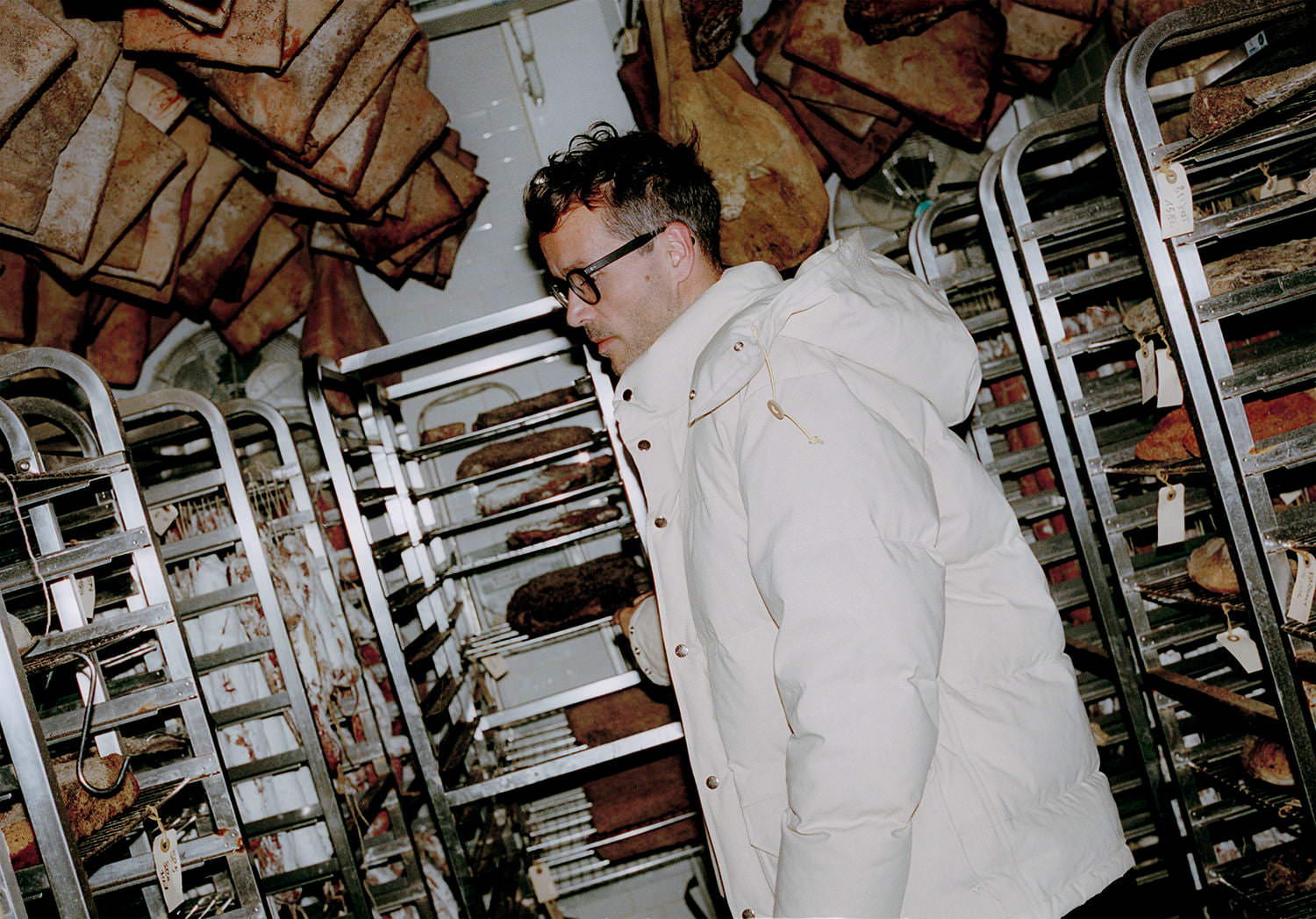
Born in Italy to a Sicilian father and Norwegian mother, Christian moved to Denmark at 7 years old and started working in the restaurant industry at 17. Christian worked as a sous-chef at the long-established French restaurant Taillevent in Paris, El Bulli in Spain, and noma in Denmark. Following those experiences, Christian opened the restaurant Relæ and the natural wine bar Manfreds in Copenhagen. Relæ won The Sustainable Restaurant Award two years in a row in 2014 and 2015, spreading Christian's name around the world. Relæ closed during the pandemic and Christian now runs Mirabelle and Beast. His activities are not limited to the kitchen: Christian also participates in various food and climate conferences.











